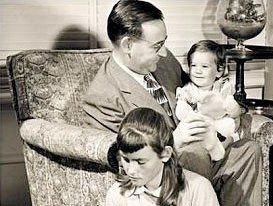

(This post first appeared on California Progress Report.)
The movie California State of Mind: The Legacy of Pat Brown, which has been making the rounds of public TV channels, is a tender blend between a family memoir and a nostalgic look at a more hopeful era in California history. At times it makes you want to weep for what we once had and will probably never have again.
The producers, Hilary Armstrong and Sascha Rice, granddaughters of the man who was governor from 1958 to 1966, weren’t troubled by the mix of the personal and the political, much of it in the form of old film clips. And in some ways the past forty years have been a sort of family history: two governors Brown, a treasurer Brown who also ran for governor, plus the half dozen lesser public offices those Browns held.
» Read more about: Pat Brown Documentary: Remembrance of California Past »


Even as more Los Angeles politicians are pledging to refuse contributions from Walmart, one candidate with Walton family support placed third in the closely-watched June 6th primary for Assembly District 46 in L.A.’s San Fernando Valley.
Charter school champion Brian Johnson lost the race despite massive independent expenditures on his behalf by political action committees, including two that are closely tied to Carrie Walton Penner and her husband Greg Penner. Ms. Penner is the daughter of Walmart Chairman Rob Walton and Mr. Penner is a member of the Walmart Board of Directors.
PAC spending was widely expected to carry Johnson into the general election. But in the end it may have hurt more than it helped.
Johnson was put on the defensive by winning candidate Adrin Nazarian’s charge that “right-wing anti-teacher organizations funded by the owners of the Walmart Corporation are spending hundreds of thousands of dollars to elect Brian Johnson to the Assembly.”
Johnson’s campaign issued a response which implied that Nazarian’s claim was unfounded,
» Read more about: Los Angeles Election: Walton Family Values? »


Right now former President George W. Bush, who appointed John Roberts as Chief Justice, must be having a Dwight Eisenhower moment.
When Eisenhower nominated California’s Republican governor Earl Warren to be the Chief Justice of the Supreme Court in 1953, he thought he was appointing a conservative jurist. Later, Eisenhower reportedly said that appointing Warren, who took the Court in an unprecedented liberal direction, was the “biggest damn fool mistake” he had ever made. (Warren is one of the people I profile in my new book, The 100 Greatest Americans of the 20th Century: A Social Justice Hall of Fame).
Chief Justice Roberts is a far cry from Earl Warren. Indeed, the Roberts court has been one of the most conservative in history.
But we can be grateful for Roberts’ decision to side with the 5-4 majority to uphold the Obama health care reform law.


Nearly all employers struggle to contain health care costs. Walmart, however, has long made it part of its business model to externalize those costs. The World’s Biggest Company has repeatedly come under fire from labor and community groups, as well as states, for promoting a health care structure that encouraged employee reliance on Medicaid. The Supreme Court’s June 28 decision upheld the heart of the Affordable Care Act, which was good for President Obama–and also good for Walmart.
“The ‘Obamacare’ plan is a huge subsidy to Walmart,” Nelson Lichtenstein, author of The Retail Revolution: How Walmart Created a Brave New World of Business said in a phone interview. The Affordable Care Act will also benefit the bottom rung of Walmart’s workforce who will be eligible for Medicare under the plan, he added.
Lichtenstein refers to Walmart’s army of part-timers. The retailer’s Web site features a state-by-state report of its average hourly rate for full-time regular employees and makes much of the figures—but the pay scale numbers don’t apply to large numbers of Walmart associates (and are disputed by advocates who use industry research to place the pay scales at a lower rate.)
USA Today reports that Walmart declined to say what the retailer’s national hourly wage is for part-time workers.
» Read more about: Wal-Fare Benefits: Facts About Walmart Employee Plans »
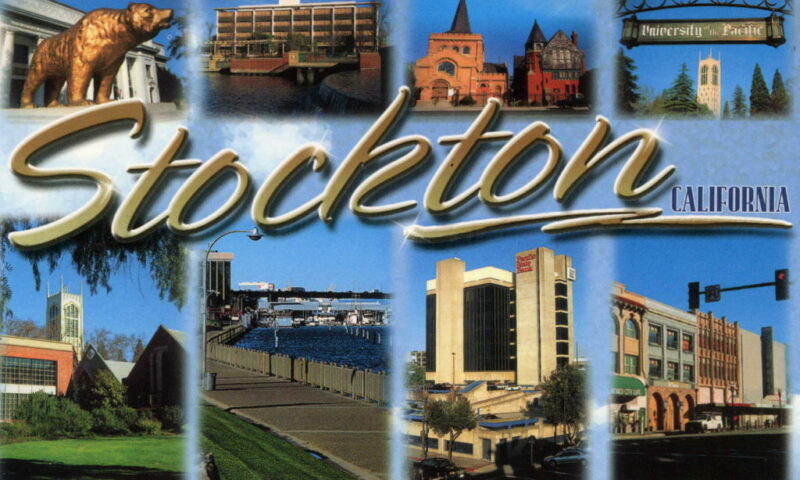
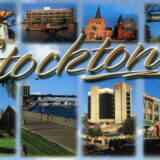
My hometown just declared bankruptcy. No, not the town I was born in, and not the place I have lived most of my adult life, but where I grew up. Stockton, with a population of about 300,000 is the largest city in America to file for Chapter 9 protection. Conventional wisdom says it was the unfunded pension liability or mismanagement or too much debt, and under state guidelines for bankrupt cities, somebody has to take the blame. But the choices that led to this debacle go back decades.
When I left Stockton in the mid-1960s for college, it was a divided city. The affluent and mostly white people lived on the north side. The “others” lived to the east and south. Others were people who worked with their hands, people who picked the fields, people who worked the seasonal canneries. These were mostly low-wage workers, sometimes no-wage workers who turned fresh produce into food for supermarket shelves across the country.
» Read more about: Stockton Bankruptcy: Fat City’s Missed Opportunities »
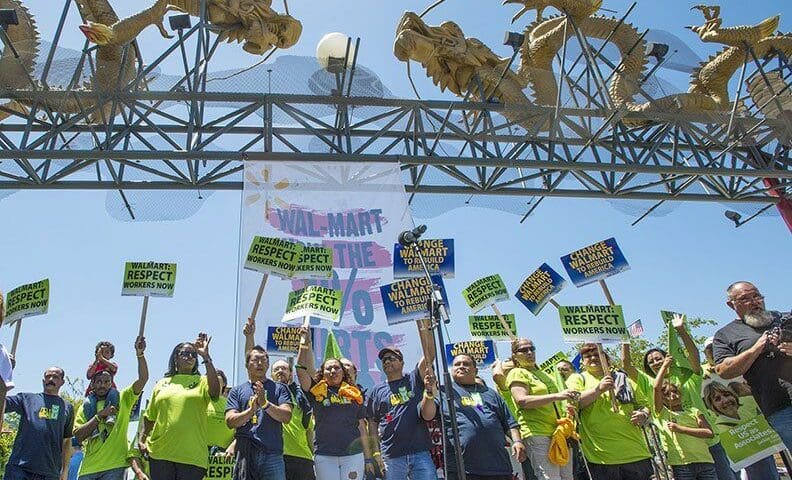

Last Saturday, thousands of people made history in Chinatown at the largest Walmart protest ever held. Spurred by Walmart’s attempt to build its first L.A. grocery store in Chinatown, the crowd, many wielding handmade protest signs, marched from Los Angeles State Historic Park (the Cornfield) through one of L.A.’s oldest neighborhoods.
They came to fight what Walmart’s presence in this community, and others across Los Angeles, would bring: low-wage jobs, the destruction of local businesses and the spirit-crushing replacement of local character with chain store sameness.
At the main rally, underneath the iconic dragon gates on Broadway and Cesar Chavez Avenue, participants listened to a lineup of speakers and entertainers, the latter including Grammy winners Tom Morello and Ben Harper. Among the most compelling were current Walmart workers scraping by on poverty wages and reliance on government assistance, and community leaders concerned about the destruction of their cultural heritage Walmart would cause.
» Read more about: Thousands March and Rally Against Walmart in LA »


Under clear skies and searing heat, thousands turned out on June 30 to protest Walmart’s controversial plan to open its first L.A. grocery store in Chinatown. Among the featured speakers at the event was Grishriela Green — one of dozens of current Walmart employees who joined the march and rally, bringing with them a distinctly personal perspective on the retail giant.
Green, who was hired by Walmart’s store in the Crenshaw District three and a half years ago, was raised in a family that imbued her with an understanding of the importance of hard work, and of speaking one’s mind. When the Crenshaw Walmart first opened, Green was optimistic about the effect it would have on her life and community, but quickly became disillusioned with the corporation’s claims.
“One of the promises, which is a half-truth, is it’s a career opportunity for each and every associate,” said Green. “Even after 20 years,
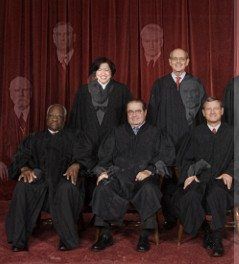

The 1936 Republican presidential candidate, Alf Landon, based his bid to defeat FDR on repealing Social Security. In a campaign speech Landon promised: “We must repeal. The Republican Party is pledged to do this.” That year’s election night tally revealed who was in touch with Americans and who wasn’t. FDR: 523 electoral votes; Landon: 8 electoral votes.
And another crazy coincidence. In 1937, U.S. Supreme Court Justice Owen ROBERTS switched his vote and found the Washington state minimum wage constitutional (from an earlier N.Y. case in which the high court had found the minimum wage unconstitutional).
Two weeks later, the Supreme Court found the National Labor Relations Act constitutional. Two days after that a U.S. Appeals Court ruled that Social Security was unconstitutional. Six weeks later, the Supreme Court found it constitutional.
» Read more about: Court Ghosts: And You Thought Obama Had It Tough »


This week the Natural Resources Defense Council (NRDC) released Testing the Waters: A Guide to Water Quality at Vacation Beaches. For some of us, reading the annual report card – or at least hearing its scarier parts summarized on the Six O’clock News – has become a summer ritual, the last piece of broccoli we must swallow before happily heading to our favorite polluted shoreline.
This year’s guide looks at the state of beaches in 2011 and rates them. Among its findings:
» Read more about: Beached: NRDC Rates Our Shorelines for Pollution »


 As Duke Law School professor Jed Purdy explained yesterday in his sensible, humane and far-sighted take on the Court’s decision on the Affordable Care Act:
As Duke Law School professor Jed Purdy explained yesterday in his sensible, humane and far-sighted take on the Court’s decision on the Affordable Care Act:
“Justice Roberts’ opinion makes him a hero for a day to many liberals. It also moves the Court, at a stately pace, toward an aggressively right-wing view of the federal government’s power. Moreover, it keeps the Court at the very heart of issues where it does not belong. For all its obvious appeal, it is self-aggrandizing and far more radical in its reasoning than in its outcome. That reasoning may have serious consequences down the road.”
Purdy refers in part to Justice Roberts’ endorsement of a narrow view of the Commerce Clause shared by the dissenting justices (Kennedy, Alito, Scalia, and Thomas), who would have struck down the Act in its entirety. (Roberts allowed the individual mandate to stand on the strength of Congress’ constitutional power to tax.
» Read more about: Roberts Rules: Why the Obamacare Victory Is No Win »